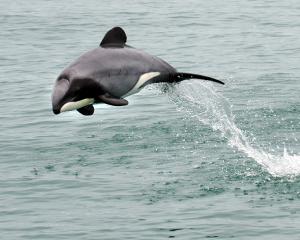
And they will continue to dominate as Māori and Pākehā together fight against political racism.
All through the Christmas and New Year break, Māori and Pākehā advocates have offered support and assistance for writing submissions on the Principles of the Treaty of Waitangi Bill.
The response was so overwhelming that the select committee submission website crashed this week with the weight of public desire to be heard.
Beyond the Treaty Principles Bill, there is even more happening in the legislative space.
The Oranga Tamariki (Repeal of Section 7AA) Amendment Bill, which allows the police to assault young people in state care, closed yesterday. Another very quiet consultation is open on the proposed Regulatory Standards Bill.

Submissions on this proposal close next week.
And then, amid these anti-Māori, anti-environment, anti-democratic government proposals, we have had the tangi of Kahurangi Tariana Turia, Ngāti Apa, Ngā Rauru, Whanganui and Tūwharetoa iwi.
Whaea Tariana was and will remain a legend of New Zealand politics.
She is a legend for her unwavering commitment to the self-determination of Māori people, whānau, hapū and iwi, and for her courageous stance in 2004 of resigning her ministerial warrant and leaving the Labour Party to establish Te Pāti Māori.
One feature of Whaea Tariana's political practice was her respectful treatment of others from whichever side of the House they came from.
At her tangi at Whangaehu Marae, it was noted how she worked with people like Bill English, Chris Finlayson and even Rodney Hide whether she agreed or disagreed with them.
But her respect for them and others was not just an act of generosity or humility. The price for her respect was reciprocity.
Respect was a two-way street for Whaea Tariana.
She did not command respect just for herself or her ministerial roles as she navigated parliamentary politics.
She sought genuine respect for the exercise of self-determination by the whānau, hapū and iwi that she loved.
Whānau Ora was the best example of this. She always insisted that Whānau Ora was not a "programme" driven by government departments or ministers.
Rather, Whānau Ora was an exercise of authority held by whānau creating their solutions for the futures they wanted for themselves and their mokopuna. She believed unreservedly that whānau were the experts in their matters.
The role of agencies was to "support, advance or get out of the way" of whānau aspirations.
She won her vision for Whānau Ora with the Key-led National government because she worked hard to have her political relationships constructed on mutual respect for her and her people.
But the currency of respect can be easily counterfeited. She found that when Labour betrayed her in 2004.
She had until then walked the delicate line of loyalty to Helen Clark and the Labour Party while holding on to the aspirations of whānau Māori who looked to her as their fierce advocate.
Labour's Foreshore and Seabed Act showed everyone that the political assertions of respect for her and her people were a sham when faced with the choice between upholding iwi property rights or confiscating those rights for political gain.
That faux respect is evident again in 2025, as Christopher Luxon and Winston Peters attended her tangi. So much of her work is being undercut by the politicians who came to Whangaehu Marae.
Willie Jackson's call for the Labour Party to apologise to her whānau for her rough treatment was a genuine gesture in response, but that was not his call to make. That call belonged to the Labour leader, Chris Hipkins.
If that apology had been delivered at her tangi, it would have meant something real and powerful.
It would have meant Labour had learned that political defensiveness had no value. Showing genuine respect to the people Whaea Tariana worked for mattered much more.
So, we start 2025 with grief, but it is a grief that fuels the rangatiratanga of iwi Māori.
Whaea Tariana held the rangatiratanga of Māori firmly in everything she did.
She was especially dedicated to the power and creativity of whānau, as she described in 2018, "within each whānau lies the key to creating positive change.
No-one may dictate the ideal part for a whānau besides that whānau themselves. Keep believing in our whānau, in all their wildness, their colour and their diversity".
Metiria Stanton Turei is a senior law lecturer at the University of Otago and a former Green Party MP and co-leader.












